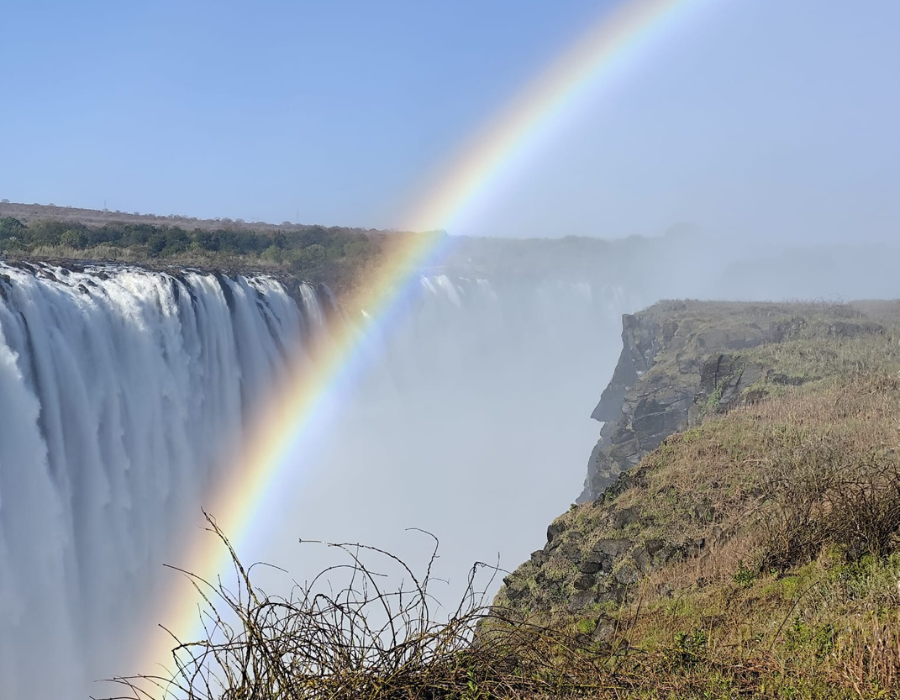Gathering at Victoria Falls: A Global Commitment.
The 15th Meeting of the Conference of the Contracting Parties to the Ramsar Convention on Wetlands (COP15) took place in Victoria Falls, Zimbabwe, from July 23 to 31, 2025. This gathering brought together government representatives, scientists, Indigenous leaders, NGOs, and youth from around the globe, united by a shared commitment to the conservation and wise use of wetlands.

A New Strategic Plan for Wetlands.
A central outcome of COP15 was the adoption of the Fifth Strategic Plan for Wetlands (2025–2034), setting the agenda for the next decade.
The plan outlines four strategic goals and a series of targets to halt and reverse the loss of wetlands by 2034. It places a strong emphasis on the wise use of wetlands, inclusive governance, and strengthening the connections between wetlands and human well-being.
The new strategy integrates indigenous knowledge, promotes gender equity, and embraces intergenerational perspectives in wetland conservation.
Its development is closely aligned with global frameworks such as the 2030 Agenda for Sustainable Development, the Rio Declaration, and the Kunming-Montreal Global Biodiversity Framework.
The Victoria Falls Declaration: Raising Ambition.
One of the defining moments of the conference was the unanimous adoption of the Victoria Falls Declaration. This declaration reinforces political commitment to wetland protection and restoration, urging increased resource mobilization and greater investment at national and international levels.
It serves as a call to action for governments and stakeholders to recognize wetlands as nature-based solutions to pressing global challenges, including biodiversity loss, climate change, and water security.

Photo by Global Nature Fund
Approving Key Resolutions for Conservation.
Delegates approved all 13 draft resolutions presented during the session.
These resolutions address a range of priorities, such as strengthening national legislation for wetland restoration, enhancing the protection of migratory birds and wetland-dependent species, and ensuring more equitable participation of Indigenous Peoples, local communities, women, and youth in decision-making processes.
The conference emphasized the need to mainstream wetlands into climate adaptation strategies, disaster risk reduction, and national development plans through improved capacity building, monitoring, and reporting.
Advancing Data, Reporting, and Youth Engagement.
COP15 also saw advancements in reporting mechanisms and data collection. Parties agreed to update Ramsar Information Sheets and standardize national reporting processes, tying them to the new Strategic Plan. In addition, a new partnership was established to improve the management and conservation of global waterbird populations.
Youth empowerment received special attention through a dedicated resolution aimed at fostering ongoing youth engagement within the Convention, reflecting a growing recognition that the next generation plays a critical role in wetland conservation.
Financing the Future of Wetlands.
On the financial side, while long-term global financing was not finalized, the Parties approved a modest increase of approximately 4.1% to the Ramsar core budget for 2025–2027, reaching CHF 15.5 million. There was also consensus on exploring innovative financing mechanisms to help developing countries implement the Plan’s ambitious goals.

Photo by Global Nature Fund
Africa’s Leadership and Regional Highlights.
The location of COP15 in Victoria Falls highlighted Africa’s vital role in global wetland conservation. The continent is home to about 40% of the world’s remaining wetlands, yet faces intense pressures from climate change and development.
The conference brought attention to efforts underway in Zimbabwe and the broader Southern African region to restore and protect Ramsar sites. Regional initiatives such as the Southern Africa Ramsar Regional Initiative (SARRI) and the African Wetland Observatory Network were spotlighted as platforms for cooperation and knowledge exchange.
Looking Ahead: A Renewed Commitment.
COP15 demonstrated a renewed collective commitment to safeguarding wetlands, not only as critical habitats for biodiversity but as integral to climate resilience and the health and prosperity of communities worldwide.
With its new Strategic Plan, set of resolutions, and enhanced participation mechanisms, the conference marks a milestone in the global movement to restore, protect, and sustainably manage wetlands for current and future generations.

